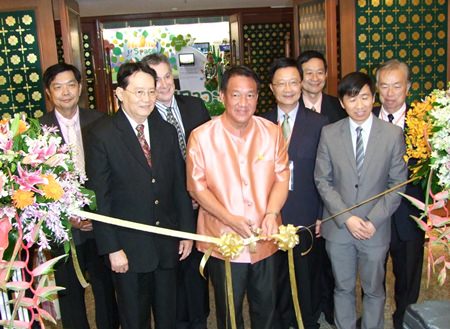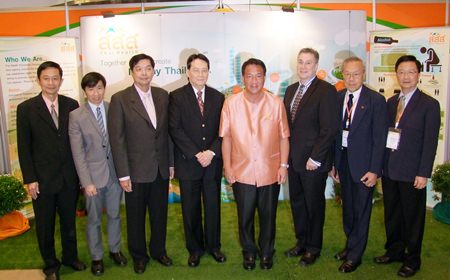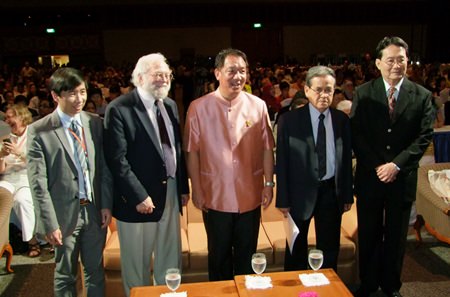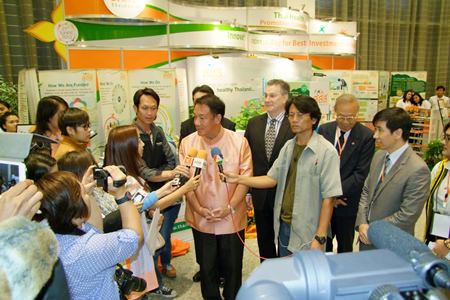While Thailand’s urbanization has raised the country’s economic prospects, it has had unintended consequences for public health, the country’s finance minister said at the opening of the International Union for Health Promotion and Education’s World Conference on Health Promotion in Pattaya.
Kittiratt Na Ranong, who also serves as deputy prime minister, told the more than 2,000 health professionals at the PEACH Convention Center in Jomtien Beach Aug. 25-29 that urban development is has created more factors contributing to the deterioration of the public’s well-being.
 Finance Minister / Deputy Prime Minister Kittiratt Na Ranong (center) cuts the ribbon to officially open the IUHPE meeting in Pattaya.
Finance Minister / Deputy Prime Minister Kittiratt Na Ranong (center) cuts the ribbon to officially open the IUHPE meeting in Pattaya.
“Economic growth, urban expansion and technological development should have helped human health, but instead they have caused negative effects, such as high blood pressure, heart disease and diabetes,” Kittiratt said. Some of those problems are caused by poor eating habits and a lack of exercise, he added.
The minister stressed that the Thai government has placed importance on promoting a healthy lifestyle, as it lays a foundation for national security. He added that Thailand has achieved its millennium-development goals set 10 years ago by the Ministry of Public Health.
Dr. Pravet Wasri, president of the National Health Foundation, which is hosting the meeting, said society should pay more attention to personal health rather than focus on economic prosperity alone. In order to achieve a health reform, everyone needs to get involved and adopt an approach based on the independent organization’s model in implementing health promotion programs.
Their remarks opened a busy three-day meeting attended by doctors and researchers from 76 countries who offered 1,449 presentations and participated in 126 workshops.
The IUHPE meeting served as a forum to highlight contrasting and challenging views and offer a platform for exchange and debate on mainstream and alternative perspectives. The various sessions provided a mixture of practical lessons from global, national and regional experiences.
The conference’s agenda sought to examine the best investments for health, the different views that shape health policy, investors in health-promotion systems, challenges to developing and implementing health policies, and innovations transforming health promotion.
Attending the meeting were Dr. Sania Nishtar, Ministry of Public Health from Pakistan, Daniel Wiestok from the research facility in Montreal University, Professor Ann Mills, scholar on policies and public health economics, Dr. Wiroj Tangcharoensathien, Ministry of Public Health in Thailand, and Somsukh Bunyabuncha, Asian Residents Development Foundation.
Other speakers included World Bank President Jim Yong Kim; Somsook Boonyabancha, secretary-general of the Asian Coalition for Housing Rights; John Frank, director of the Scottish Collaboration for Public Health Research and Policy; and Sergio Fajardo Valderrama, governor of Antioquia, and others.







